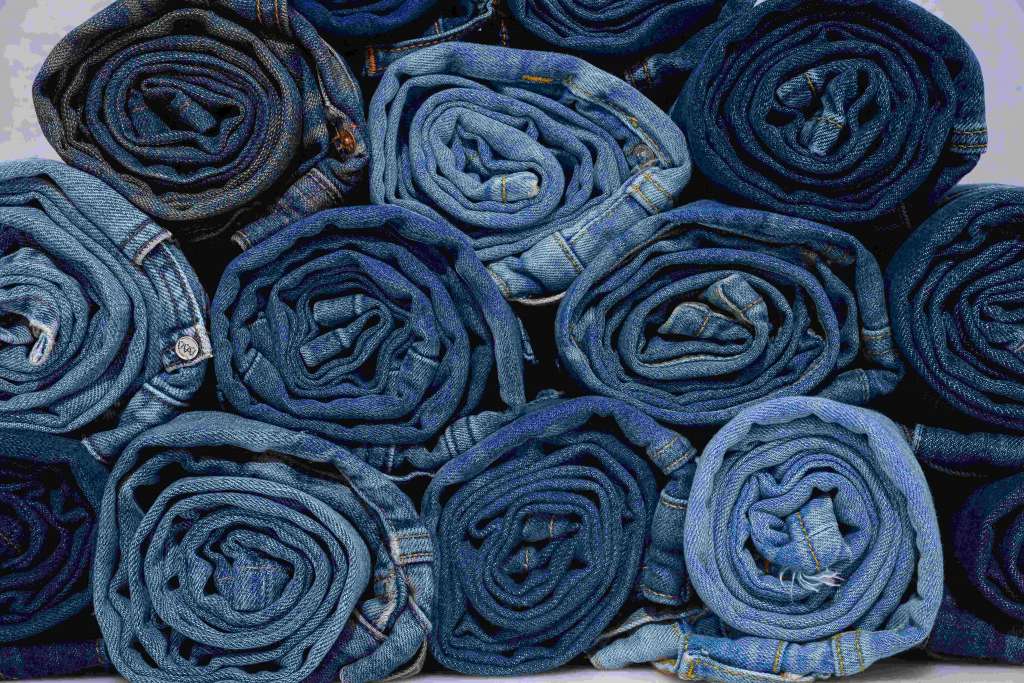Tips from jeans manufacturer to make your jeans sustainable



Summary: Fashion brands have the dubious distinction of being among the top industries when it comes to water wastage and pollution. Jeans manufacturers fall right at the center of this debate with their water and energy-intensive practices. Processing denim fabrics can consume and waste up to 15,000 liters of water. Here are the best brands in the business to make their denim sustainable.
Your favorite pair of denim exacts an exorbitant toll on nature. The amount of water used in manufacturing a pair of cotton jeans depends on the production methods and the finishes such as ripped, stone-washed looks. The industry is also responsible for wastage from production and discarded clothes that impact the climate negatively. Jeans manufacturers can use sustainable materials such as organic cotton and recycled polyester to reduce water wastage in the production of denim fabrics. Energy-saving technologies and closed-loop production processes can help reduce the impact on the environment.
Why it is important to make sustainable denim fabrics

The fashion industry is infamous for its waste and water-intensive manufacturing procedures. According to studies, the industry consumes about 80 trillion liters of water each year. Furthermore, its ancillary processes, such as dyeing and finishing, and the emission of microfibers from man-made clothes contaminate freshwater streams and marine environments, resulting in unsanitary living conditions for both humans and other aquatic life forms.
A pair of jeans can consume and/or waste up to 10,000 liters of water. This includes the water used to grow cotton and the water used for processing the denim fabric such as dyeing, washing, and finishing. This Is why it is important to switch to sustainable denim for jeans manufacturers.
Insider tips to introduce jeans in your sustainable fashion line
Here are some practical ways the jeans manufacturers can make their products sustainable.
- Digital printing
One of the ways of minimizing water usage and preventing pollutants from getting into natural ecosystems while manufacturing denim is to opt for digital printing and laser finishing. These practices reduce dependence on water-intensive, bring down dependence on chemical dyes and also prevent the release of harmful materials into the environment. G-Star Raw and Eileen Fisher use digital printing to produce their denim range. - Ozone washing
One of the sustainable methods in jeans manufacturing is using ozone gas to bleach denim fabric. instead of traditional methods such as stone washing and sandblasting. The process eliminates the use of harmful chemicals such as pumice stones, used in stone washing and sandblasting. It also makes the fabric more durable. Levi’s Water<Less line collection consumes less water in the production process. - Closed-loop production process
In a closed-loop manufacturing process, the waste materials from one stage of production are used as raw materials for another stage. This allows manufacturers to save precious resources, reduce waste, and minimize the environmental impact of the production process. For example, scraps of denim fabric can be shredded to create insulation or stuffing for pillows and cushions. Water used in dyeing can also be treated and reused in the washing of the jeans. H&M has a Conscious Denim collection that uses a closed-loop production process. - Sustainable dyes
Look for natural dyes or low-impact chemical dyes that are less harmful to the environment. Jeans manufacturers can try several alternatives to chemical and synthetic dyes. These include natural dyes such as indigo and madder root; low-impact dyes that are free of heavy metals such as lead; and recycled dyes made from waste materials. Patagonia uses natural dyes that do not have harmful chemicals and believes ethically. - Increase the shelf-life of denim
Most organic and sustainable brands by encouraging customers to repair and take care of their denim, a brand can extend the life of the product and reduce the need for new production. Mud Jeans minimizes its water wastage by renting out its jeans line on a subscription model. This process is called circular fashion which prevents clothes from heading to landfills and contributing to climate change. Another way to increase the longevity of jeans is to open worn-wear outlets where customers can buy second-hand denim. - Sustainable fabrics
While organic and natural cotton is sustainable fabrics they are also counted among the “thirstiest crops” on earth. Jeans manufacturers can introduce denim made from Tencel or recycled polyester. These fabrics cut down on water usage. For instance, Patagonia and Wrangler’s Eco-friendly collection is made from organic cotton and recycled polyester. Reformation has come out with a sustainable denim collection made from Tencel, a wood-based fiber, that is colored using natural dyes.
Sustainable denim is the way forward

Several brands are actively working to make sustainable denim. Brands such as G-Star Raw, Eileen Fisher and Levi’s are constantly trying to save water in the production cycle. Customers are more conscious about where their money is going and what they are wearing. As such jeans manufacturers must introduce sustainable and energy-conserving measures such as water recycling plants, closed-loop production processes and low-impact dyes and finishing to bring down water wastage.
Key Takeaways
- Sustainable denim can help save water wastage, reduce pollution resulting from microfibers and dyes, and bring down energy usage in manufacturing.
- The closed-loop production process ensures optimal utilization of resources at every stage to cut down on denim fabric manufacturing and consumption of dyes.
- Using ozone finishing and digital printing makes denim more durable and cuts down on the usage of water and energy.
Fashinza can help you deliver sustainable denim to your customers. Its global network of suppliers can connect you to high-quality sustainable jeans manufacturers to expand your clothing line.
Connect with Fashinza today for making your denim brand sustainable.
R



















